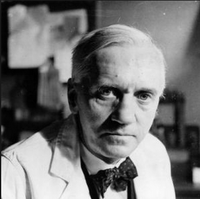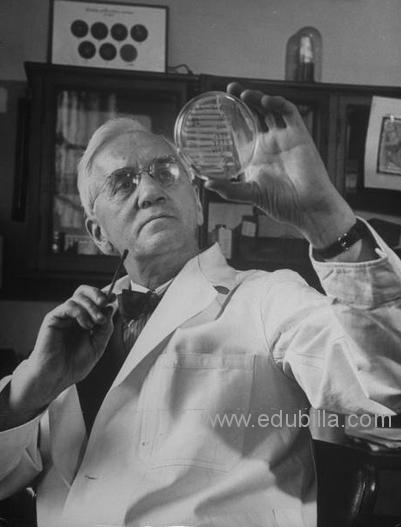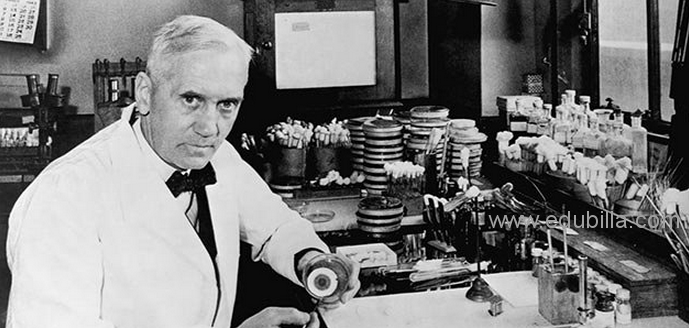










Alexander Fleming was a doctor and bacteriologist who discovered penicillin, receiving the Nobel Prize in 1945.
Synopsis
Alexander Fleming was born in Ayrshire, Scotland, on August 6, 1881, and studied medicine, serving as a physician during World War I. Through research and experimentation, Fleming discovered a bacteria-destroying mold which he would call penicillin in 1928, paving the way for the use of antibiotics in modern healthcare. He was awarded the Nobel Prize in 1945 and died on March 11, 1955.
Early Years
Alexander Fleming was born in rural Lochfield, in East Ayrshire, Scotland, on August 6, 1881. His parents, Hugh and Grace were farmers, and Alexander was one of their four children. He also had four half-siblings who were the surviving children from his father Hugh's first marriage. He attended the Louden Moor School, the Darvel School and Kilmarnock Academy before moving to London in 1895, where he lived with his older brother, Thomas Fleming. In London, Fleming finished his basic education at the Regent Street Polytechnic (now the University of Westminster).
Fleming was a member of the Territorial Army, and served from 1900 to 1914 in the London Scottish Regiment. He entered the medical field in 1901, studying at St. Mary's Hospital Medical School at the University of London. While at St. Mary's, he won the 1908 gold medal as the top medical student.
The Road to Penicillin
In September 1928, Fleming returned to his laboratory after a month away with his family, and noticed that a culture of Staphylococcus aureus he had left out had become contaminated with a mold (later identified as Penicillium notatum). He also discovered that the colonies of staphylococci surrounding this mold had been destroyed.
He later said of the incident, "When I woke up just after dawn on September 28, 1928, I certainly didn't plan to revolutionize all medicine by discovering the world's first antibiotic, or bacteria killer. But I suppose that was exactly what I did." He at first called the substance "mold juice," and then named it "penicillin," after the mold that produced it.
Thinking he had found an enzyme more powerful than lysozyme, Fleming decided to investigate further. What he found out, though, was that it was not an enzyme at all, but an antibiotic -- one of the first antibiotics to be discovered. Further development of the substance was not a one-man operation, as his previous efforts had been, so Fleming recruited two young researchers. The three men unfortunately failed to stabilize and purify penicillin, but Fleming pointed out that penicillin had clinical potential, both in topical and injectable forms, if it could be developed properly.
On the heels of Fleming's discovery, a team of scientists from the University of Oxford -- led by Howard Florey and his co-worker, Ernst Chain -- isolated and purified penicillin. The antibiotic eventually came into use during World War II, revolutionizing battlefield medicine and, on a much broader scale, the field of infection control.
Florey, Chain and Fleming shared the 1945 Nobel Prize in Physiology or Medicine, but their relationship was tainted over who should receive the most credit for penicillin. The press tended to emphasize Fleming's role due to the compelling back-story of his chance discovery and his greater willingness to be interviewed.
FRS (1943)[1]
Nobel Prize (1945)
FRSE
FRCS(Eng)
Knight Bachelor (1944)

